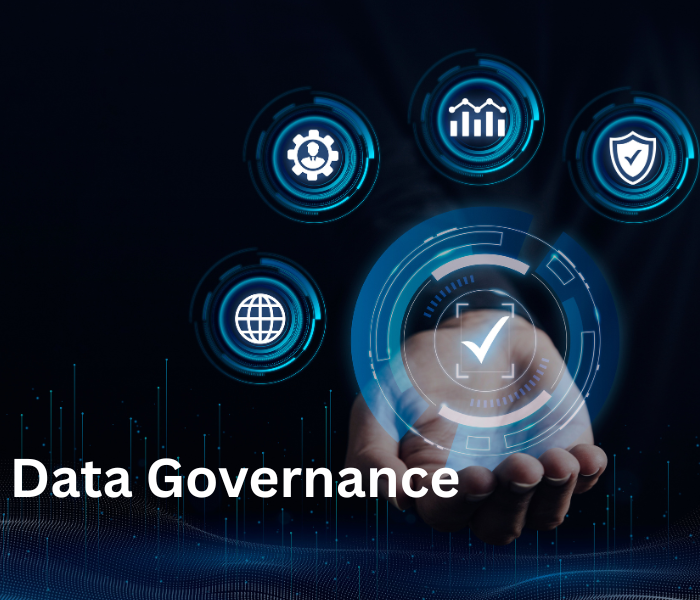Why Data Governance Is Becoming a Strategic Priority for Modern Enterprises

In the era of accelerating digital transformation, data has become the most valuable strategic asset for modern enterprises. As organizations increasingly depend on data-driven decision-making, the need for a structured, secure, and reliable approach to managing that data has never been more critical. According to QKS Group, the global Data Governance market is projected to grow at an impressive CAGR of 23.77% through 2030, signaling its rising importance in the digital economy.
At its core, Data Governance refers to a principled, comprehensive method for managing data throughout its entire lifecycle—from acquisition and storage to usage, sharing, and final disposal. It encompasses the policies, processes, and standards that ensure data is accurate, secure, consistent, and usable across the organization. With businesses collecting massive volumes of data from diverse sources, a robust governance framework has become indispensable.
The Strategic Importance of Data Governance in the Digital Age
Digital transformation has reshaped how organizations operate, innovate, and compete. As companies deploy advanced technologies such as cloud computing, AI, automation, and data analytics, the volume, variety, and velocity of data continue to surge. This creates both opportunities and challenges.
Organizations that implement effective Data Governance frameworks are better positioned to harness data as a powerful driver of growth. They gain:
- Enhanced decision-making
- Stronger regulatory compliance
- Improved customer trust
- Optimized operational efficiency
- Greater competitive advantage
Conversely, the absence of proper governance can lead to data chaos, security risks, regulatory penalties, and missed business opportunities.Building Trust Through Responsible Data Management
Trust is the cornerstone of every successful business relationship. As organizations gather more sensitive information—customer data, financial records, intellectual property—it becomes crucial to manage and protect it responsibly.
A strong Data Governance model helps organizations:
- Demonstrate compliance with internal policies
- Meet external regulatory requirements
- Ensure transparency in data handling
- Strengthen client and partner trust
When stakeholders feel confident that their information is handled responsibly, they are more likely to engage, collaborate, and do business with the organization.
Empowering Employees Through Data Democratization
One of the most impactful benefits of Data Governance is its role in democratizing data access across the organization. When governance is implemented effectively, employees gain access to reliable, accurate, and relevant data—without compromising security or compliance.
This democratization allows:
- Customer-facing teams to provide better support
- Product teams to enhance innovation
- Business units to identify new revenue opportunities
- Leadership to make data-backed strategic decisions
Importantly, expanding data access does not weaken security. Instead, governance ensures that the right people have access to the right data at the right time—maintaining integrity and control while enabling productivity.
A Lifecycle Approach: From Acquisition to Disposal
A key strength of modern Data Governance models is their lifecycle-based approach. Effective governance covers every stage:
- Data creation and collection
- Storage and classification
- Access management
- Sharing and usage
- Archiving and retention
- Secure disposal
By managing data holistically, organizations prevent duplication, minimize risk, and optimize data quality across the entire enterprise.
Market Outlook: Why Data Governance Is Expanding Rapidly
The projected 23.77% growth rate through 2030 underscores increasing global recognition of the strategic role Data Governance plays. Several factors contribute to this strong market trajectory:
1. Increasing Data Volume
Organizations are collecting more data than ever before—from IoT, mobile apps, digital transactions, social interactions, and enterprise platforms.
2. Rising Regulatory Demands
Governments worldwide are enforcing stricter data privacy laws such as GDPR, CCPA, HIPAA, and more.
3. Growth in Cybersecurity Threats
Data breaches are more frequent and costly, making governance essential for risk mitigation.
4. Enterprise Cloud Adoption
Hybrid and multi-cloud environments require standardized data rules and oversight.
5. Need for Better Decision-Making
Businesses need trusted, high-quality data to power analytics, AI, and automation.The Future of Data Governance
As data becomes more critical to business operations, Data Governance will evolve to support digital-first ecosystems. Future governance models will emphasize:
- AI-supported data quality management
- Automated policy enforcement
- Advanced metadata intelligence
- Adaptive compliance tools
- Unified governance across cloud and on-prem systems
Organizations that invest in governance now will be better equipped to innovate, scale, and thrive in a data-centric future.
Conclusion
The rapid expansion of the Data Governance market reflects a global shift toward responsible, intelligent, and strategic data management. By establishing clear policies and lifecycle oversight, organizations enhance security, strengthen trust, and unlock unparalleled business value. As data continues to fuel innovation and decision-making, governance emerges not just as a necessity—but as a powerful competitive advantage.
- Art
- Causes
- Crafts
- Dance
- Drinks
- Film
- Fitness
- Food
- Игры
- Gardening
- Health
- Главная
- Literature
- Music
- Networking
- Другое
- Party
- Religion
- Shopping
- Sports
- Theater
- Wellness



